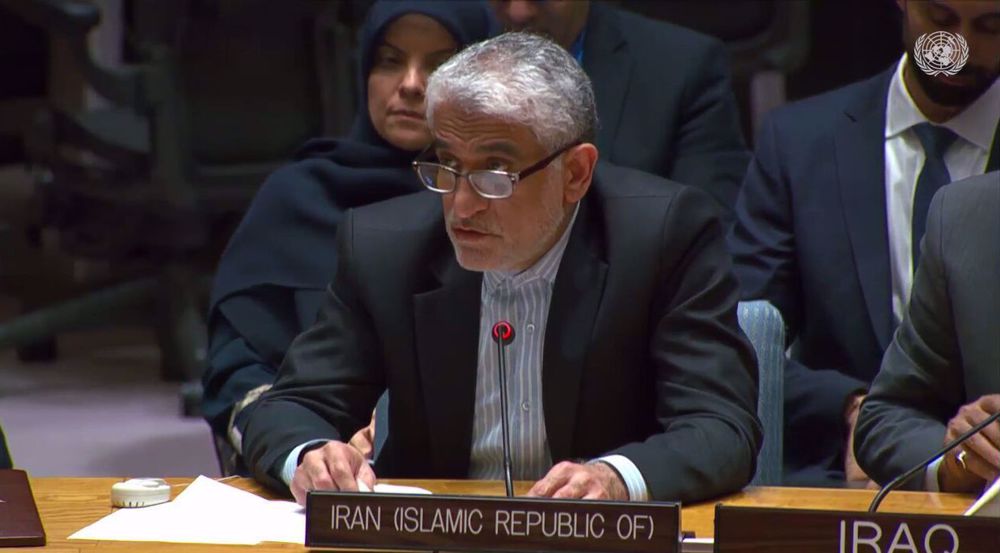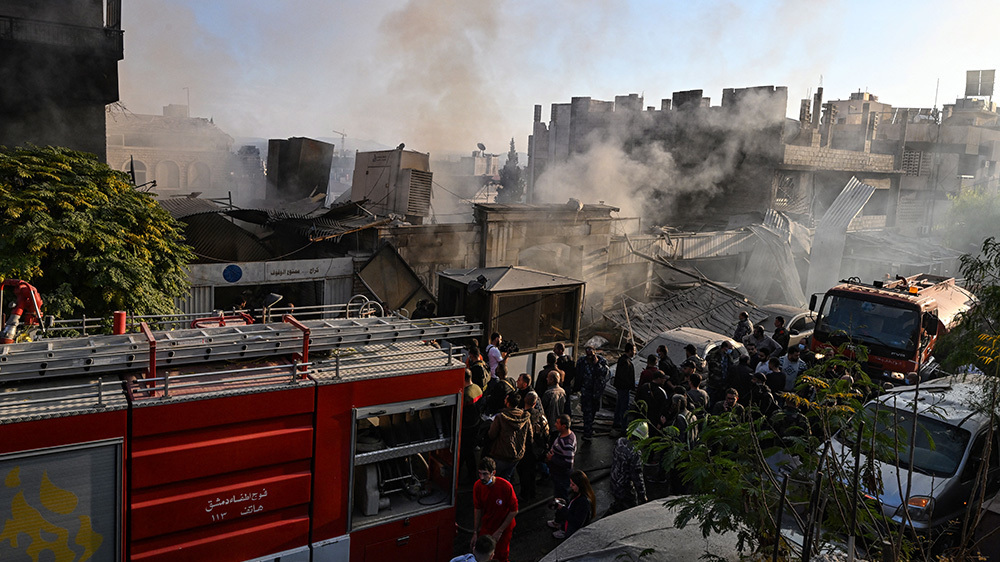Kerry, Putin discuss coordinating efforts against Daesh, Nusra in Syria
US Secretary of State John Kerry and Russian President Vladimir Putin have discussed military and intelligence cooperation against Daesh and al-Qaeda-affiliated Nusra Front terrorist groups in Syria.
The US State Department said in a statement that without “concrete and near-term steps” diplomatic efforts to end the Syria conflict could not go on "indefinitely".
The two sides met “to advance efforts to restore the nationwide cessation of hostilities in Syria and to establish conditions that can enable political transition talks to resume between the opposition” and the Damascus government, the statement added.
At the start of his meeting with the US secretary of state, Putin said, “Our last conversation with President [Barack] Obama convinces me that we are not just developing cooperation, but doing so with the aim of achieving tangible results.”
Putin added, “I send the president my best wishes, and hope that you can report that we have moved forward on our issues, as a result of these talks.”
Earlier on Thursday, The Washington Post published a leaked draft of the Syrian plan that Kerry was to offer to Putin.
According to the text, the two countries will set up a Joint Implementation Group, whose “purpose is to enable expanded coordination between the United States and the Russian Federation beyond the established safety of flight procedures."
Kremlin spokesman Dmitry Peskov said on Thursday that Moscow and Washington should coordinate efforts to fight terrorism in Syria.
“I want to remind you of the repeated statements of President Putin, who said that the Kremlin has considered from the very beginning that it is only possible to effectively fight terrorism on the territory of Syria and neighboring states jointly—through coordination of joint efforts, not just an exchange of information, but namely a coordination of joint efforts,” Peskov told reporters.
Syria has been gripped by foreign-backed militancy since March 2011. United Nations Special Envoy for Syria Staffan de Mistura estimates that over 400,000 people have been killed in the conflict.
The UN has stopped its official casualty count in Syria, citing its inability to verify the figures it receives from various sources.
A ceasefire brokered by the US and Russia went into effect in Syria on February 27, but it does not apply to the Daesh and al-Nusra Front terrorist groups in the Arab country.
While most European countries have been voicing opposition to the government of Syrian President Bashar al-Assad, some of them are gradually making a shift in their policies as they realize the importance of Damascus’ efforts in fighting terrorism.
VIDEO | Former FBI agent criticizes US Congress for 'outright corruption'
IRGC chief urges Muslim countries to cut aid routes to Israel
'New chapter in cooperation': Iran, Venezuela sign new MoUs
Jordan sentences former lawmaker for supporting Palestinian resistance
Basij volunteer forces hold massive drills in southwestern Iran
Israeli war criminals 'not welcome', US city says after ICC ruling
US vetoing of Gaza ceasefire resolution ‘disgraceful’: Iran’s UN envoy
VIDEO | IAEA adopts anti-Iran resolution tabled by E3


















 This makes it easy to access the Press TV website
This makes it easy to access the Press TV website